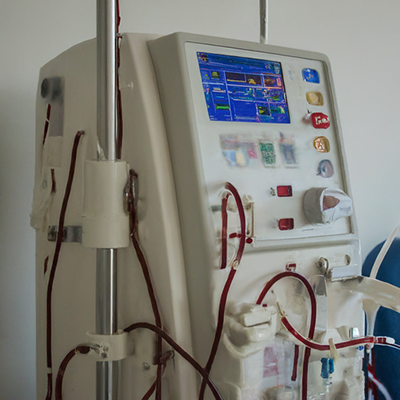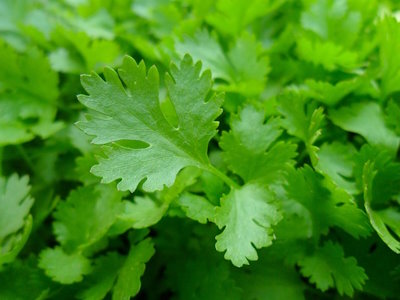Contents
- 1 Causes of High Potassium
- 2 Natural Remedies for High Potassium: Dietary Management
- 2.0.1 Natural Remedies For High Potassium 1: Stay Hydrated
- 2.0.2 Natural Remedies For High Potassium 2: Herbal Teas
- 2.0.3 Natural Remedies For High Potassium 3: Limit Salt Substitutes
- 2.0.4 Natural Remedies For High Potassium 4: Calcium and Glucose
- 2.0.5 Natural Remedies For High Potassium 5: Maintain Healthy Kidney Function
- 3 Prevention Tips
- 4 Natural Remedies for High Potassium: Further Considerations
- 5 Manage Underlying Causes
- 6 Educate and Advocate
Natural remedies for high potassium: In addition to other significant health risks, hyperkalemia or high blood potassium levels may result in muscle weakness and irregular heartbeats. Medical care is necessary when blood potassium levels are alarmingly high. However, some natural treatments and lifestyle changes may help manage and prevent its recurrence.
Causes of High Potassium
Hyperkalemia may be brought on by a variety of conditions, including kidney disease, dehydration, certain medications, trauma, overeating potassium-rich food, and hormonal imbalances.
Natural Remedies for High Potassium
Natural Remedies for High Potassium: Dietary Management
- Limit Potassium-rich Foods: Reduce your intake of foods high in potassium, including bananas, avocados, spinach, beans, and oranges.
- Opt for Low-potassium Foods: Increase your consumption of apples, berries, grapes, cucumber, green beans, cabbage, etc.
Natural Remedies For High Potassium 1: Stay Hydrated
A sufficient amount of water intake may help the kidneys remove surplus potassium via the urine if functioning correctly.
Natural Remedies For High Potassium 2: Herbal Teas

Some herbal beverages, such as nettle and dandelion tea, have a diuretic effect that might help remove too much potassium. However, there is no scientific proof of their effectiveness. So, before using them, you should always see a doctor.
Natural Remedies For High Potassium 3: Limit Salt Substitutes
Potassium chloride is often used as a salt substitute instead of sodium chloride. Read the labels to choose items without added potassium.
Natural Remedies For High Potassium 4: Calcium and Glucose
In crises, intravenous injections of calcium gluconate help the heart muscle temporarily contract. Sometimes, insulin and glucose work together to help potassium move from the blood into the cells.
Natural Remedies For High Potassium 5: Maintain Healthy Kidney Function
Some herbs, such as stinging nettle, dandelion root, and cranberry, may improve kidney function. It is essential to speak with a healthcare practitioner before incorporating them into your routine.
Prevention Tips
- Regular Monitoring: If you are at risk for hyperkalemia, you may benefit from routine blood tests to check your potassium levels.
- Limit Alcohol and NSAIDs: Both alcohol and nonsteroidal anti-inflammatory drugs (NSAIDs) can deteriorate renal function and elevate potassium levels.
- Exercise Moderation: Even though regular exercise is essential for overall health, overusing the muscles may lead to potassium leakage into the bloodstream.
Natural remedies and dietary changes may be used to address high potassium levels. However, if someone thinks they may have hyperkalemia, they need medical attention immediately. Before modifying one’s diet or medication schedule, it is usually essential to see a doctor.
Natural Remedies for High Potassium: Further Considerations
Medication Review
- Monitor Medication Intake: Some medications, such as ACE inhibitors, angiotensin II receptor blockers (ARBs), and specific diuretics, may raise potassium levels. It is vital to regularly review medications with a doctor to ensure they aren’t contributing to excessive potassium levels.
- Potassium Binders: Doctors may advise potassium binders if hyperkalemia is chronic or recurring. These medications help the body get rid of excess potassium via feces.

Dialysis
Although not among natural remedies for high potassium, those with severe renal disease can need dialysis. This method assists in clearing the circulation of surplus potassium and other waste products when the kidneys aren’t functioning correctly.
Natural Diuretics
Due to the inherent diuretic effects of several foods and plants, which increase urination, this may assist in reducing potassium levels:
- Parsley: Often used in traditional medicine as a diuretic.
- Cilantro: Another herb that may act as a natural diuretic.
- Celery and cucumber: These vegetables are high in water content and can promote urination.
Manage Underlying Causes

For successful treatment, addressing the underlying cause of high potassium is often required:
- Kidney Function: Renal patients must keep regular medical appointments and adhere to any recommended treatment programs.
- Adrenal Gland Disorders: Conditions like Addison’s disease may influence hyperkalemia. Regular endocrinology exams may be beneficial.
Educate and Advocate
- Stay Informed: By being aware of the reasons, you may prevent and regulate high potassium levels in your body.
- Advocate for Your Health: Let your doctor know if something might affect your potassium levels. It may be essential to regularly update them on new symptoms, dietary changes, or medications.
The difficulties in reducing high potassium levels underline the necessity for an all-encompassing plan. Natural remedies should be used carefully since hyperkalemia is risky, even if they complement traditional medical therapies. Regular monitoring, informed diet and lifestyle choices, and open contact with healthcare providers are recommended to attain the best possible health outcomes.
Disclaimer: This article is a source of information; it is not a substitute for medical advice. Always consult a healthcare practitioner before changing your health regimen.
Always ask a healthcare practitioner for precise medical guidance, diagnosis, and treatment recommendations.
DISCLAIMER: All content on this website is presented solely for educational and informational objectives. Do not rely on the information provided as a replacement for advice, diagnosis, or treatment from a qualified medical expert. If you are pregnant, nursing, or have any preexisting medical concerns, talk to your doctor before using any herbal or natural medicines.
References
- National Kidney Foundation: https://www.kidney.org/atoz/content/potassium
- National Institutes of Health: https://ods.od.nih.gov/factsheets/Potassium-HealthProfessional/
- MedlinePlus (National Library of Medicine: https://medlineplus.gov/potassium.html
